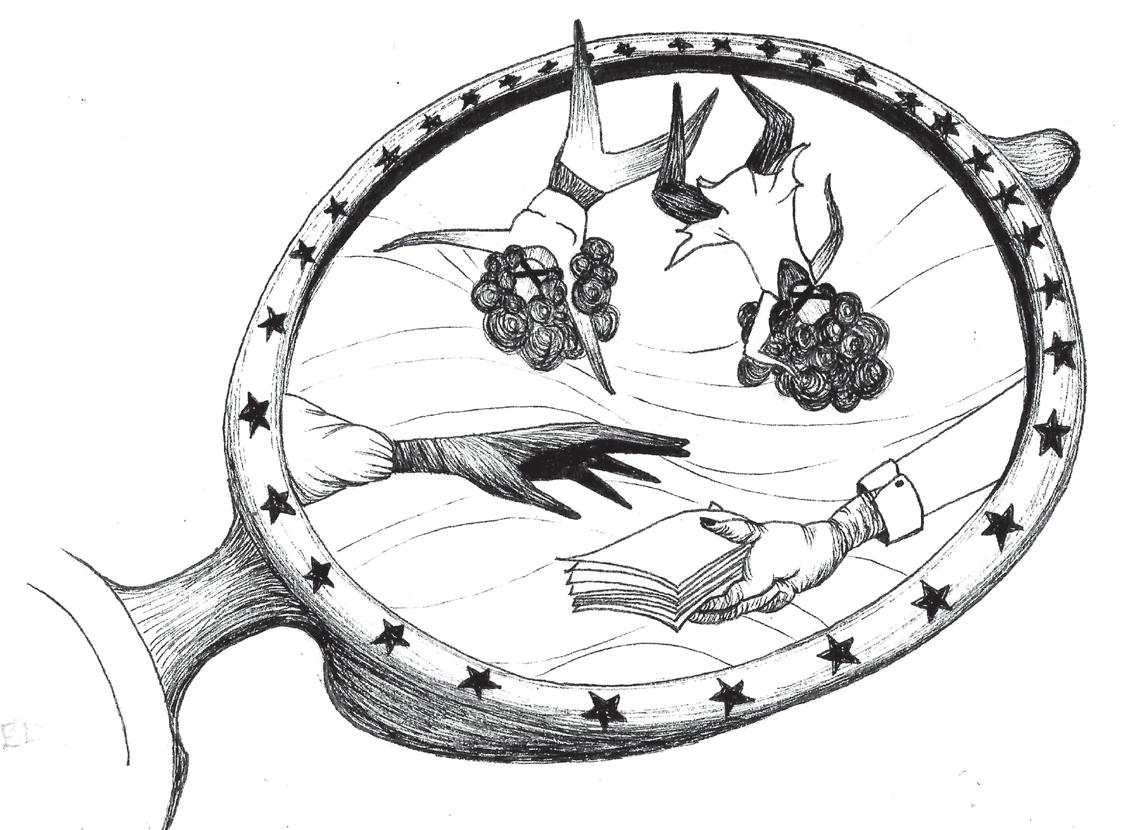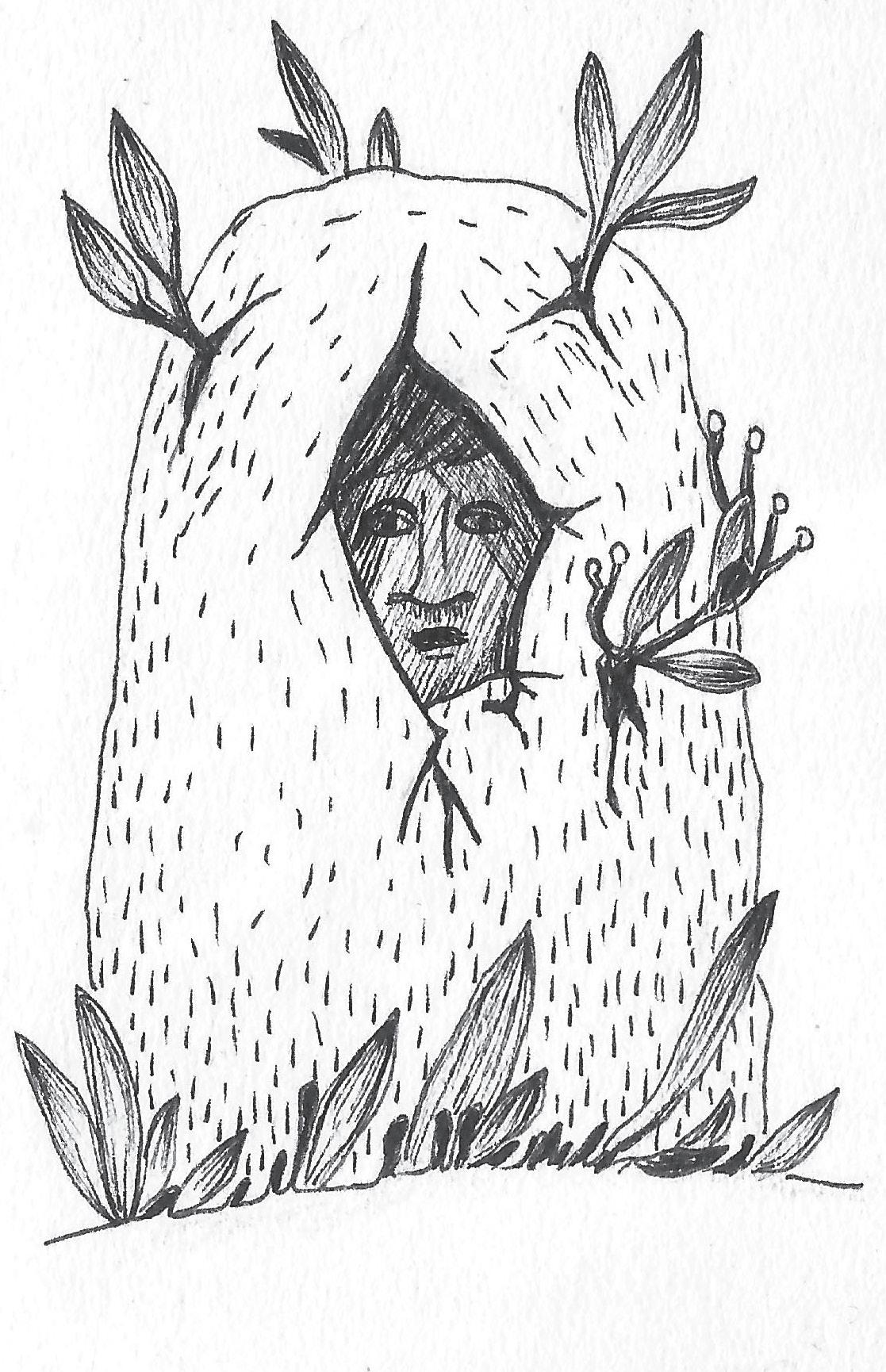
5 minute read
Invisible Bonds: Trafficking of Nigerian women in Italy
— giulia dalmonte
In Europe, the media presents migration processes as a faceless mass of people who are moving from one continent to another: we’re not used to investigating who are the individuals that make up these groups, about their stories, about their ages, nationalities and gender differences. Failing to observe that there are identity differences inside a migratory flow leads to de-humanizing migrants: in our imagination they become objects devoid of personal stories, cultures, feelings.
Advertisement
which would otherwise be condemned at a moral level. But instead, there are a lot of personal stories that we should listen to, often distressing ones shared by a large group of people.
Here, I’ll introduce the phenomenon of the international trafficking of Nigerian women for the purpose of sexual exploitation: a complex story that we are dealing still not enough.
The United Nations defines trafficking as “the recruitment, transportation, transfer, harbouring or receipt of persons, by means of the threat or use of force or other forms of coercion (…) for the purpose of exploitation. Exploitation shall include, at a minimum, the exploitation of the prostitution of others or other forms of sexual exploitation, forced labour or services, slavery or practices similar to slavery, servitude or the removal of organs”. More than 11.000 Nigerian women arrived by boat in Sicily in 2016, and more than 80 per cent of them will be trafficked into sex slavery on street corners across Italy and Europe.
The un’s International Organization for Migration says it has seen an almost 600 per cent increase in the number of potential sex trafficking victims arriving in Italy by sea over the past three years.
Therefore statistics show that the phenomenon is increasing and the age of the victims is decreasing, despite the initiatives taken at international level.
Women from Edo state in Southern Nigeria, who rarely know what they will really face in Europe, are recruited from small towns and villages by deception and false promises of a better life.
Women are sometimes fleeing from contexts of violence in their home country and they hope to find a ransom here: most of them believe that it is possible to find new opportunities to study and work legally. They face tough journeys, often crossing countries like Lybia, and when they arrive at the destinations they discover the real value of their debts to the traffickers. The debt may vary between 20.000 and
60.000 euros, and the maman (a female member of the criminal network which manages the trafficking), or her collaborator, uses threats and physical violence to pressure them into what they are suppose to do to accelerate the loan repayment: become prostitutes.
Violence and torture have an objective: the completely subjugation of the women towards the maman. these actions can last a few days but will have consequences for the rest of their lives. The abuse, however, is not only physically but also psychological, and it takes place through rituals and religious beliefs.
For part of the southern Nigerian population, “juju” (or voodoo) is the traditional religion, and in fact there is a voodoo rite that formally marks the pact between the woman and her “benefactor”.
During the rite she promises the full repayment of the debt and they speak powerful and binding words in front of Mami Wata, the equivalent of the Virgin Mary.
After, they collect in three different packages, the pieces of the woman’s nails, hair and clothing, and then are mixed together with cassava flour and rooster’s blood. The ritual make it clear the indissoluble link between the two sides, at which if the woman eventually rebelled against, will be punished by the “spirits” with diseases, madness and death. So the “juju” becomes a strong device for control, and this is one of the elements that has historically marked out Nigerian prostitution on the street compared, for instance, to that of Eastern European women. For the first one, unlike the second, a strict control on the streets is not necessary because they are already victims of a continuous psychological subjugation: this is what the Professor Francesco Carchedi, expert on women trafficking studies, calls “invischiamento psicologico” to indicate a strong mental entanglement.
The subalternity condition of women is also aggravated by blackmail, and torture or murder of the victim’s parents, who are still living in their countries of origin.
This is the complex scenario in which organizations and institutions work daily against the trafficking of Nigerian women.
Trama di Terre is one of the Italian associations which welcome, for many years now, native and migrant women in difficult situation or who have experienced violence.
From 2014 the association also accepts women refugees and asylum-seekers based on an agreement with the Prefecture of Bologna.
Consuelo Bianchetti, the centre’s operator and an anthropologist specialised in sex trafficking, tells me about the importance of maintaining a gender perspective when we tackle the issue of migration.
“The work that we are aiming for, in Trama, is the recognition of International protection starting with gendered experiences,” she tells me. “Such a perspective is necessary for detecting gender-based discrimination, violence and oppression in their country of origin.”
“If we interpret these phenomena for example, all those disparities that do not allow a self-empowerment like the lack of access to education because they are women.”
“With those we receive, we started a journey based on relationships, a support process, but above all it’s a process of consciousness relative to the violence suffered throughout their lives.
The violent events are not immediately recognised but in the way that this woman has the possibility to focus on them, for whatever they may be terrifying, and reprocess the events at a later stage.” Social protection is necessary to provide tailored support for women, starting with the tools for rebuilding their lives, particularly concerning entry into employment, which avoids the danger of relapse in the cycle of exploitation.
This view is also shared by Vivian Wiwoloku, Nigerian Pastor in the Methodist Church of Palermo and President of the association “Il Pellegrino della Terra” that, since 1996, offering support, literacy courses and training for employment for women who are victims of trafficking.
“When women are ready to rebel against the traffickers they ask us - Which kind of alternative do I have? How am I supposed to maintain myself? - being able to guarantee an alternative is a major problem for us. We live in a city - Palermo - where there is a high level of unemployment and so it is becoming increasingly difficult to find a job for these women.”
In the association three former-victims have been recruited who escaped from the criminal network: their presence made the exit process easier for many other women. “This all started because during the prayer meetings
Meeting after meeting they were always more and then they started to tell us their stories. It was at that moment that I knew I had to do something.”
Vivian tells me that he has received death threats, and when I ask him if he was scared to continue after that, he says: “No, I’m not afraid. This is slavery and we cannot tolerate slavery.”
In Sicily I met with the organisers of lila, the Italian League for Action Against aids.
For several years they have been working on the streets to give medical assistance and prevention to women: “almost all the women are very young. I remember this powerful scene of a little girl that came out of a client’s car. She got into our van to drink hot tea and take a little warmth from us and after she threw herself outside, resigned, for continue her day on the street.”
Our task as Christians, and I’m sure of that, is to hold the hand of that little resigned woman and walk with her into a path of liberation from exploitation. If we turn our heads on the other way, if we pretend that nothing happening here, then we are also responsible.

Giulia Dalmonte is a Student of Cultural Anthropology and Religions and a member of the Waldensian and Methodist Church in Bologna. Her mission is to reduce any kind of gender and social inequality wherever she is.







